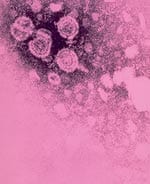The Various Health-Promoting Benefits of Polyenylphosphatidylcholine (PPC)
-400x350.jpg)
Polyenylphosphatidylcholine (PPC), also referred to as phosphatidylcholine, is a fat-soluble nutrient with many health-promoting benefits. These include protecting the liver, sustaining cardiovascular health, and supporting nervous system and gastrointestinal function. Dietary sources of PPC include soybeans, liver, oatmeal, cabbage, cauliflower, egg yolks, meat, and vegetables.
PPC is an essential component in each of the body’s cell membranes, the dynamic surfaces on which cells carry out many of their biochemical activities. PPC is a phospholipid rich in polyunsaturated fatty acids—particularly linoleic and linolenic acid—that provide fluidity, or flexibility, to the cell membrane, thus facilitating crucial cellular processes.
Aiding Liver Function
The liver is one of the body’s most metabolically active organs, and plays a crucial role in detoxifying chemicals, drugs, and hormones. Most metabolic reactions in the liver occur on cell membranes, and thus PPC is a particularly beneficial nutrient for liver health.
PPC helps protect the liver against the effects of alcohol. In a study in mice, alcohol administration induced numerous changes, depleting the liver-supportive nutrients S-adenosyl-L-methionine (SAMe) and glutathione, as well as increasing lipid peroxidation, a marker of oxidative stress. PPC protected against these effects, restoring levels of SAMe and glutathione, and relieving oxidative stress in the liver.1
In a study of baboons, PPC helped to prevent alcohol-induced cirrhosis. PPC also helped to prevent two common detrimental effects of alcohol: the formation of fatty liver and the elevation of blood lipid levels.2 In a human study, investigators examined the effects of PPC on heavy alcohol drinkers. While PPC treatment for two years did not affect the progression of liver fibrosis, it did promote favorable changes in blood levels of bilirubin (a liver-produced waste product) and liver transaminases (enzymes that are elevated by liver damage.)3
 |
Fighting Hepatitis
In patients with acute viral hepatitis, six weeks of supplementation with PPC helped to speed recovery, though PPC did not hasten recovery from hepatitis secondary to septicemia.4 PPC also appears to benefit patients with chronic hepatitis. In one double-blind study of patients with chronic hepatitis who tested negative for hepatitis B, PPC reduced histological evidence of disease activity. The researchers concluded that PPC may be a useful adjunctive therapy in patients with chronic hepatitis that is inadequately controlled by conventional therapy.5
Another study examined PPC’s effects when combined with the anti-viral medication interferon on patients with two forms of chronic hepatitis, hepatitis B and hepatitis C. Seventy-one percent of the patients treated with PPC and interferon experienced a biochemical response to therapy (as measured by a 50% or greater decrease in the liver enzyme serum alanine aminotransferase) compared to 56% of the patients treated with interferon alone. PPC was especially effective in increasing the response rate to treatment in hepatitis C patients. The researchers noted that PPC is well tolerated and may be combined with interferon therapy for chronic hepatitis.6
Improving Heart Health and Brain Function
PPC’s role in cardiovascular health and cholesterol management has been the subject of extensive study. In combination with diet modifications and regular exercise, PPC can help restore cholesterol and triglycerides to healthier levels. More specifically, PPC may lower coronary risk by helping reduce serum LDL (low-density lipoprotein) levels,7 reducing serum triglycerides,8-10 normalizing platelet function, and favorably influencing plaque volume.11,12 PPC has also been show to decrease the incidence of atherosclerosis-related symptoms such as angina, thus having a powerful effect clinically as well as biochemically.7
One of PPC’s most important functions is assisting in the formation of acetylcholine, a vital chemical messenger used by cells in the hippocampus and septum, the memory centers of the brain. The choline used by brain neurons mainly comes from dietary sources such as PPC and lecithin. PPC is the preferred dietary source of choline because it is a better delivery form and does not cause unpleasant gastrointestinal side effects associated with choline.13
PPC may be especially important in advanced age because the brains of older adults take in less choline than those of younger adults.14 PPC may improve some cognitive changes associated with aging. Some evidence suggests that boosting brain levels of choline in older adults can slow or moderately reverse memory deterioration.15,16
Gastrointestinal and Exercise Benefits
The stomach’s mucosal tissue lining helps protect it from the high concentrations of acid and digestive enzymes contained within. Without this protection, the stomach wall would be digested just like the food contained within it. PPC is integrated in the gastric lining and protects the stomach from developing ulcerations related to the use of nonsteroidal anti-inflammatory drugs (NSAIDs) such as ibuprofen.17 A study of rats suggested that PPC may protect against stress-induced stomach ulcers.18 By helping to heal gastric erosions, PPC may be useful even after an ulcer is already present.19
 |
Intense or prolonged exercise requires sustained use of the muscle contraction pathways, and may deplete the body’s choline levels. In a group of runners, plasma choline levels dropped by 40% following completion of a marathon. Supplementation with acetylcholine precursors such as PPC may help prevent diminished endurance or performance associated with strenuous exercise.20 Emerging studies indicate that PPC supplementation can help maintain or slightly elevate plasma choline levels during exercise. A plentiful pool of available choline may help enhance athletic performance by assisting in the formation of acetylcholine, which helps relay muscle contraction signals.21
Dosage and Safety Concerns
A therapeutic dose of PPC ranges from 1.8 to 2.7 grams per day. PPC has no known contraindications, side effects, or interactions with medications. It also has an excellent safety profile and is generally well tolerated. The most common reported side effect is gas, which is most strongly associated with very high doses, typically 15 grams or more per day. PPC is generally considered safe in pregnancy, and choline requirements appear to be especially high in pregnant and lactating women. Pregnant and lactating women should always consult with their physicians before using PPC or other nutritional supplements.


Social Login